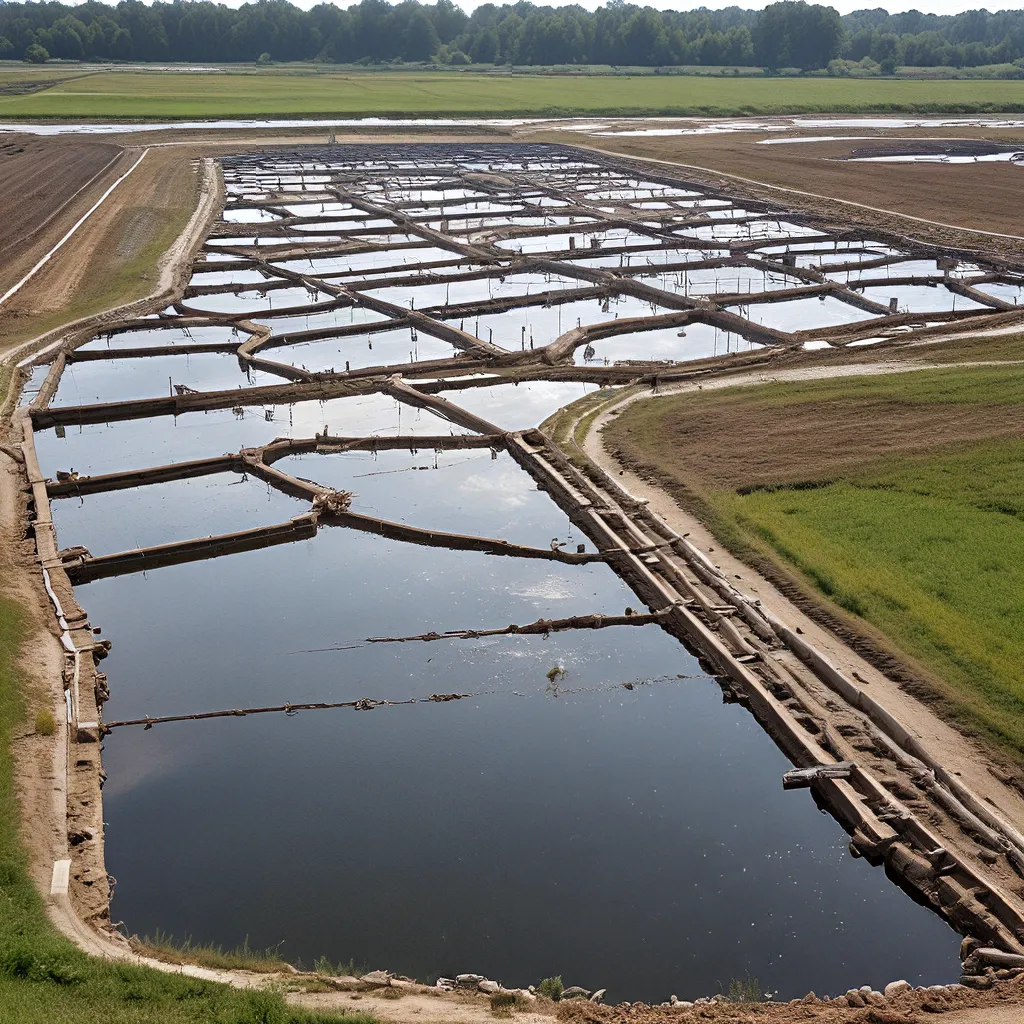
As an environmental enthusiast, I’ve always been fascinated by the intricate web of interconnections that govern our natural resources. In the realm of wastewater treatment, this concept of the “water-energy-food nexus” has become increasingly important, as we strive to find sustainable solutions that balance the competing demands on our precious water supplies.
The Evolving Landscape of Wastewater Treatment
Gone are the days when wastewater was simply a byproduct to be disposed of. Today, we understand that this “waste” is actually a valuable resource, teeming with the potential to address some of our most pressing environmental and societal challenges. Innovative wastewater treatment technologies are transforming the way we approach this issue, unlocking new opportunities to recover water, energy, and nutrients from the wastewater stream.
Unlocking the Potential of Wastewater
As I delve into the “water-energy-food nexus”, I’m struck by the sheer complexity of the interconnections at play. On one hand, the treatment of wastewater requires a significant amount of energy – from the pumping and aeration processes to the advanced treatment methods. Yet, on the other hand, the wastewater itself contains valuable energy in the form of organic matter that can be harnessed through biogas production or other renewable energy technologies.
Researchers have also discovered that wastewater can be a rich source of nutrients, such as nitrogen and phosphorus, which are essential for agricultural production. By recovering these nutrients, we can reduce the reliance on energy-intensive and environmentally-taxing synthetic fertilizers, while also helping to close the nutrient loop and support sustainable food production.
Balancing Competing Demands
The challenge, of course, lies in striking the right balance between these competing demands. How do we optimize the use of water, energy, and food resources, all while ensuring the responsible management of wastewater? It’s a delicate dance, one that requires a deep understanding of the interconnected systems at play.
Experts suggest that a holistic, integrated approach to wastewater treatment and resource recovery is the key to unlocking the full potential of the water-energy-food nexus. This might involve, for example, using advanced anaerobic digestion technologies to generate renewable energy from organic matter while simultaneously recovering nutrients for agricultural use.
Embracing the Circular Economy
As I delve deeper into this topic, I’m struck by the parallels between the water-energy-food nexus and the concept of a “circular economy”. In a circular economy, waste is viewed not as something to be discarded, but as a valuable resource to be reclaimed and reused. This aligns perfectly with the principles of sustainable wastewater management, where we strive to extract maximum value from the wastewater stream.
Closing the Loop
One of the most exciting aspects of this circular approach is the potential to “close the loop” on our water, energy, and food systems. By recovering and repurposing the resources within wastewater, we can reduce our reliance on finite, non-renewable resources, while also mitigating the environmental impact of traditional wastewater disposal methods.
Alpha Wastewater, for example, is a company that has embraced this circular philosophy, working to develop innovative technologies that enable the recovery and reuse of water, energy, and nutrients from wastewater. Their approach not only helps to address the pressing environmental challenges we face, but also has the potential to create new economic opportunities and drive sustainable development.
The Future of Wastewater Treatment
As I contemplate the future of wastewater treatment, I can’t help but feel a sense of cautious optimism. The road ahead is likely to be paved with both challenges and breakthroughs, as we continue to navigate the complexities of the water-energy-food nexus.
Overcoming Barriers and Embracing Innovation
One of the key barriers to widespread adoption of circular economy principles in wastewater treatment is the cost associated with implementing these new technologies. However, as the demand for sustainable solutions grows and the regulatory landscape evolves, I’m hopeful that these barriers will gradually be overcome.
Research is also ongoing to optimize the efficiency and cost-effectiveness of wastewater treatment processes, with a focus on renewable energy generation, nutrient recovery, and water reuse. As these innovations come to fruition, I believe we’ll see a surge in the adoption of integrated, multi-functional wastewater treatment systems that truly embody the principles of the circular economy.
A Sustainable Future Awaits
Ultimately, the future of wastewater treatment lies in our ability to embrace the complexity of the water-energy-food nexus and to think holistically about the management of our natural resources. By recognizing the inherent value in wastewater and actively pursuing innovative solutions, we can unlock a sustainable future that benefits both the environment and our communities.
As I reflect on this journey, I’m reminded of the powerful words of one of the researchers I encountered: “The water-energy-food nexus is not just a concept, but a necessary way of thinking about the future of our planet.” It’s a sentiment that resonates deeply with me, and one that I hope will inspire others to join in this crucial effort to protect our precious resources for generations to come.